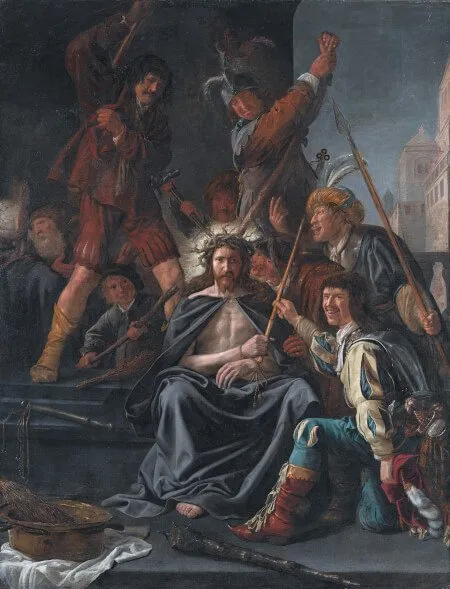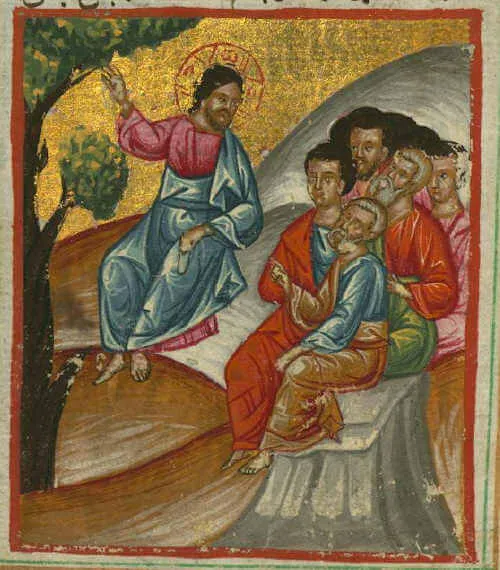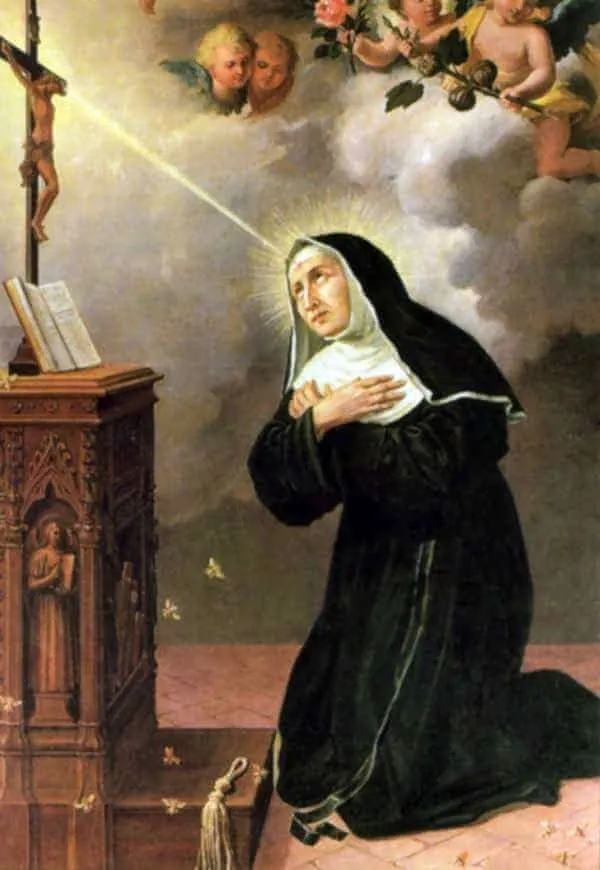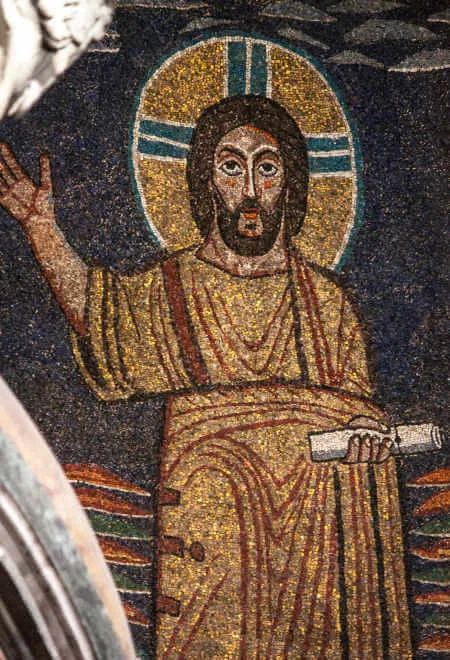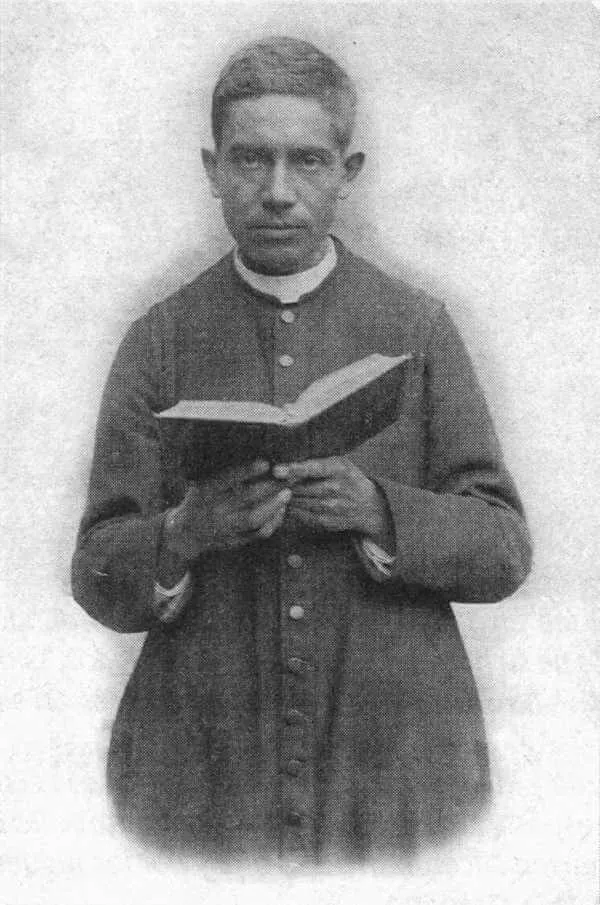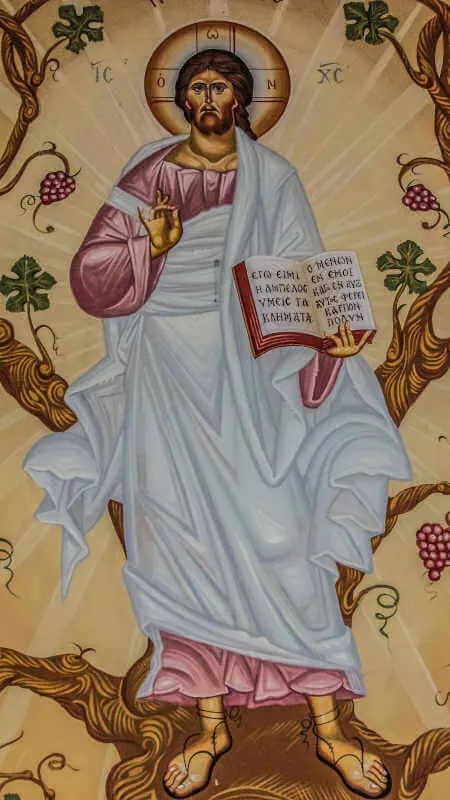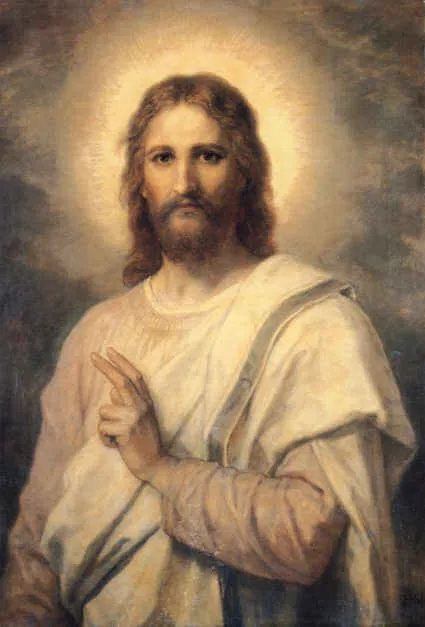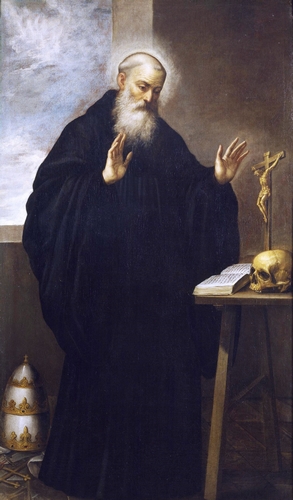Bernardine was born into a noble family in the town of Massa Marittima, in the Province of Siena, Italy, where his father was governor. Both of Bernardine’s parents died before he reached the age of seven, leaving him to the care of his aunt. His aunt’s devout Catholic faith greatly influenced Bernardine. He especially grew in love for the poor and often preferred to give his food away rather than to refuse a beggar.
When Bernardine was eleven, his uncles sent him to school in Siena to study civil and canon law. During those years of study, he continued in his devotion, fasted every Saturday in honor of the Blessed Virgin Mary, and was careful to engage only in dignified and reverent conversations. After completing his schooling at the age of seventeen, Bernardine remained in Siena and joined the Confraternity of Our Lady, whose members assisted at a local hospital that cared for the sick, orphans, the poor, and pilgrims. In the year 1400, when Bernardine was twenty, a plague hit Siena and countless people died, including many of the hospital workers. Courageously, Bernardine gathered twelve young men, just as Jesus gathered twelve apostles. Together, they took over the administration of the hospital and tirelessly devoted themselves to the care of the sick. After four months of hard work, Bernardine fell ill, but not from the plague. He remained bedridden for four months and used that time to deepen his prayer. When he recovered, he spent fourteen months caring for an aunt, who was blind and bedridden, until her death.
Around the age of twenty-two, Bernardine decided to enter into a time of solitude and prayer to discern God’s will for his life. His discernment led him to join the Franciscan Friars of the Strict Observance. Though their life of prayer and penance appeared strict to the outside world, to Bernardine it was the bare minimum. He regularly exceeded the normal disciplines of the order, joyfully imposing upon himself more severe penances and prayer than was expected of him. After completing his novitiate and his first profession of vows, the twenty-four-year-old Bernardine was ordained a priest on his birthday, the Feast of the Nativity of the Blessed Virgin Mary.
Father Bernardine loved our Blessed Mother, was deeply devoted to Christ Crucified, daily grew in humility and virtue, prayed often, engaged in severe penance, and entirely devoted himself to the glory of God. One day while he was praying in front of a crucifix, he sensed Jesus saying to him, “My son, behold me hanging upon a cross. If you love me, or desire to imitate me, be also fastened naked to your cross and follow me. Thus you will assuredly find me.”
Father Bernardine had an insatiable desire for the salvation of souls. He longed to preach the Gospel but struggled with a speech impediment. Through prayer, Father Bernardine understood that preaching was not to be based upon the eloquence or strength of his voice, but upon the interior presence of God. His faith and charity ignited a powerful fire within him by which he started to become a beloved preacher. At that time, Father Bernardine attended a mission preached by the itinerant preacher Saint Vincent Ferrer. During that mission, Saint Vincent prophesied to the congregation that someone present would take up his preaching mantle in Italy. That “someone” was Father Bernardine.
Interiorly confirmed in his mission to preach, Father Bernardine began to be exceptionally effective. He preached not only the words of Christ, he preached Christ Himself, because it was Christ Who lived in Him. Only a few words from his mouth seemed to produce more good fruit than hours of sermons given by other friars. People took note. He once taught, “In all your actions seek in the first place the kingdom of God and his glory; direct all you do purely to his honor; persevere in brotherly charity, and practice first all that you desire to teach others. By this means the Holy Spirit will be your Master, and will give you such wisdom and such a tongue that no adversary will be able to stand against you.”
Over the next thirty-plus years, Father Bernardine preached all over Italy, traveling on foot from town to town. He began in churches, but soon the churches were not big enough, so he preached in the public squares and anywhere that people would listen to him. Civil authorities even invited him to their towns. He would stay for no more than a few weeks in one town and then move on to another.
In Bernardine’s sermons, he directly confronted the sins of that time. He preached against materialism, sexual immorality, indecent conversations, gambling, and every sort of sinful excess. At times he would gather many items of immorality, such as cards, immodest clothing, dice, perfumes, and more, and burn them in the public square in a “bonfire of vanities.” He also fervently promoted devotion to the Holy Name of Jesus through the symbol “IHS,” the first three letters of Jesus’ name in Greek. Lastly, he constantly sought reconciliation and unity in Christ. Without a strong national government at the time, conflicts between neighboring cities were a serious problem. Through his preaching, people reconciled individually, and entire cities put an end to wars and conflicts with other cities. At times, his preaching was accompanied by miraculous prophecies and healings. He is even said to have raised four people from the dead.
As often happens with saintly preachers, someone accused Bernardine of heretical teaching, and he had to travel to Rome to stand trial. Upon the completion of his trial, the pope declared him innocent of all charges, and Father Bernardine resumed his mission with the blessing of the Holy Father. The Holy Father later said that Bernardine was a second Saint Paul. The Holy Father even offered to make him a bishop three times, but each time Bernadine turned the pope down. Later in life he was appointed Vicar General of his order for a period of five years, during which time he worked hard at reforms. The last two years of his life were spent traveling, preaching, and saving many souls. Six years after his death, Father Bernardine was canonized a saint.
Perhaps the greatest lesson we can take from Saint Bernardine is that the power of our words does not come from earthly learning, the sound of our voices, or the eloquence of our arguments. The true power of our words comes from the depth of our hearts. When our hearts are on fire with the love of God, it is God Himself Who speaks through us and many souls will be touched. Ponder the power, or lack thereof, of your own words. If you find yourself to be ineffective in the proclamation of the Gospel, turn more fervently to a life of prayer and penance. Seek first to glorify God within your own soul, and trust that if you do so, God will effortlessly reach many others through you.
Source: https://mycatholic.life/saints/saints-of-the-liturgical-year/may-20—saint-bernardine-of-siena-priest/


